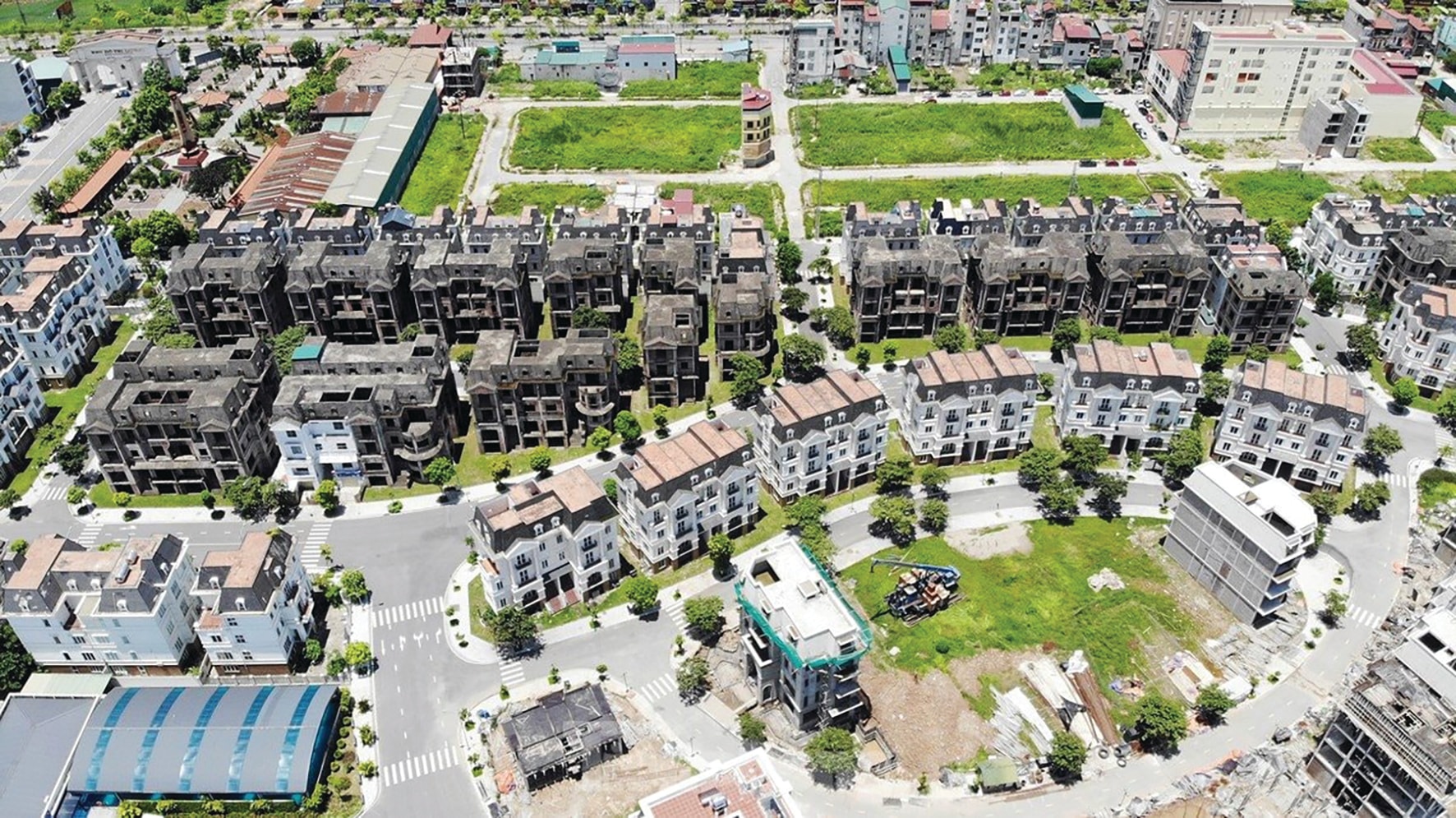Taxing slow-moving projects and abandoned land
The Ministry of Construction, together with other ministries and sectors, met with Deputy Prime Minister Tran Hong Ha recently to discuss the current state of the Vietnam real estate market. As mentioned, the Deputy Prime Minister mandated research on taxing slow-moving projects and abandoned land without hurting those who legally own homes and land, preventing double taxes, and clearly separating speculators from actual users.

The Government has just issued a directive requiring research into taxing abandoned and slow-developing properties.
Taxing to curb house prices
The Ministry of Construction had previously suggested that the Ministry of Finance create a tax policy to curb real estate speculation in a report submitted to the Government Office. In line with global norms and domestic socioeconomic circumstances, it also suggested researching progressive taxes on second and abandoned properties.
The new legal framework made it possible to penalize "hoarded" or abandoned land holdings that are awaiting sale. Projects will be canceled if they are not used for 12 months in a row after the date of handover or if the land use progress lags 24 months behind the progress noted in the investment decision. The project developer is given a maximum 24-month extension and is required to make an additional payment to the State budget if the land is not used or is delayed. The Government will cancel the extension without paying for the property, any assets related to it, or the costs of the investment if the project developer has not used the land by the end of the extended period.
Regarding individual investors, in Dr. Nguyen Van Dinh’s opinion, there is now no policy in place within the legal system to recognize, regulate, and stop land hoarding and speculation. As a result, it is difficult to define the terms "real estate speculation or investment" in Vietnam. Purchasing, renting, or transferring land for personal use is permitted and aligns with the market process based on "profit and loss" self-responsibility.
However, Dr. Nguyen Van Dinh said the primary cause of "land fever" would be unregulated real estate purchases, sales, and transfers, which could be dangerous for the economy as a whole as well as the real estate market. Therefore, it is imperative that real estate tax regulations be issued to control the real estate market so that it develops in a safe, healthy, and sustainable manner. Taxing real estate for speculators rather than those who purchase it for residential, commercial, or production uses can boost state budget revenue and aid in real estate market regulation. Additionally, this is a global tendency.
Many challenges ahead
Anyone purchasing a home in Singapore is required to pay a charge equal to 20% of the property value for a second home and 30% for a third. For homes that the seller has owned for a little period of time, the tax rate may rise gradually. First-year property sales in Singapore are subject to 6% tax, second-year property sales are subject to 8% tax, third-year property sales are subject to 4% tax, and fourth-year property sales are tax-free.
Land that has been abandoned or under improvement for more than two years is taxed at a rate of 5% in Korea; land that has been abandoned for five years is taxed at a rate of 8%; land that has been abandoned for seven years is taxed at a rate of 9%; and land that has been abandoned for more than ten years is taxed at a rate of 10%. Abandoned land is subject to a 3% tax in the US.
Because property speculation will become riskier due to interest rates and other opportunity costs, this tax policy will reduce or remove the incentive for people to speculate, slowing down the rise in real estate prices. It progressively loses all purposes to buy and sell real estate to turn a profit or to create a fictitious supply and demand to raise real estate values. Besides, it will encourage those who own abandoned property to sell and rent it, expanding the supply of housing for those who actually need it. The Government will collect taxes to fund public investments, such as the construction of roads, schools, and hospitals, if taxes are imposed, yet people still need real estate speculation.
Nevertheless, Dr. Nguyen Van Dinh said there would be some difficulties with using tax policy to control the real estate market. In order to use taxes in an efficient and transparent manner, government authorities must encourage the development and completion of housing information systems and databases that will be used as a foundation for classifying homes as second or third residences in Vietnam. This calls for significant expenditures in both human and technological resources.
“We must also take into account the potential drawbacks, such as the fact that taxes may cause people to ‘exhaust' their purchasing power, exerting long-term effects on the economy or creating legal loopholes where the rich can still evade taxes by giving relatives ownership of second, third, etc. properties; rent prices may rise to compensate for the tax burden”, said Dr. Nguyen Van Dinh.








